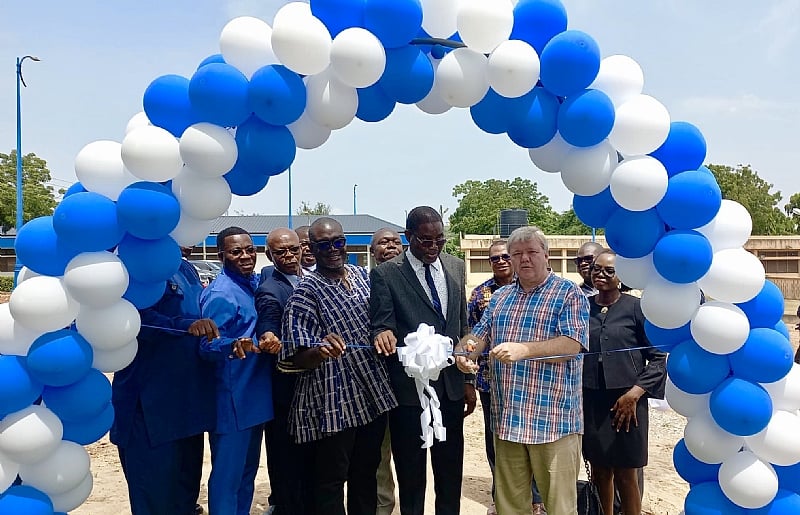Ghana Water Limited (GWL) is taking proactive measures to tackle the significant issue of water loss within its distribution network by establishing a specialized Leak Detection Field (LDF). This initiative comes as a significant response to the alarming rate of water loss, estimated at 48% of GWL’s annual water production. The financial repercussions of this loss are staggering, costing the company approximately GH₵1.89 billion annually. To enhance its leak detection capabilities, GWL has partnered with Aarhus Vand, a Danish company renowned for its expertise in water management. The collaboration is facilitated by the Danish Embassy and aims to equip GWL’s engineers and technicians with the necessary training and resources to improve water loss management across Ghana.
Central to this collaboration is the focus on modernizing GWL’s operations and implementing efficient technologies to curb leaks. The training will encompass best practices in asset management and the use of Geographic Information Systems (GIS) tools, both crucial for effective leak detection. A pilot project has already been launched in Tema, serving as a proof of concept for the strategies employed by Danish experts and showcasing their applicability in the Ghanaian context. The establishment of the Leak Detection Field not only represents a commitment to hands-on training for GWL staff but also enhances their ability to identify and repair both visible and hidden leaks in the water distribution system.
In addition to addressing leakage issues, GWL has already begun implementing modernization measures, including the deployment of smart meters that allow for streamlined billing and accurate remote readings. Furthermore, they have digitized their commercial operations, facilitating easier payment and issue reporting for customers via mobile devices. Dr. Clifford Braimah, the Managing Director of GWL, emphasized the importance of adopting modern technologies in curtailing water loss and improving operational efficiency, pointing to unreported and often undetected leaks as significant impediments to consistent water supply.
Dr. Braimah’s remarks at the launch of the Leak Detection Field highlighted the urgency of managing water losses, asserting that the initiative targets both visible issues and those unseen challenges that adversely affect GWL’s performance. He stated that these ongoing leaks not only diminish the pressure within GWL’s distribution network but also create barriers that prevent the utility from meeting the rising water demand in Ghana’s urban areas. By identifying and repairing these leaks, GWL aims to enhance service delivery while ensuring financial stability, positioning itself as a leading utility in line with global best practices.
Furthermore, Dr. Braimah expressed appreciation for the support received from international partners, including the Danish government and the World Bank, which have played instrumental roles in enhancing Ghana’s water management framework. The partnership includes efforts to tackle Non-Revenue Water (NRW) management, which has been aided by initiatives like the Water Worx Project that supply essential tools to improve technician efficiency. By prioritizing these collaborative projects, GWL strives to create a more sustainable model for water management that will ultimately benefit its consumers throughout the country.
The Danish Ambassador to Ghana, Mr. Tom Norring, underscored the premise that reducing water loss is not only economically beneficial but also crucial for enhancing water service availability, especially for citizens in areas experiencing irregular supply. He articulated the link between low water loss rates and decreased energy consumption, as water often has to traverse long distances before reaching consumers. The introduction of the Leak Detection Field is expected to enhance the efficiency and skill of GWL personnel, thereby bringing the utility closer to achieving Sustainable Development Goal (SDG) 6, which aims to ensure availability and sustainable management of water and sanitation for all. Mr. Maxwell Akosah-Kusi, the Manager for Non-Revenue Water at GWL, further illustrated the technological advancements being adopted, highlighting devices that enable technicians to pinpoint leaks based on sound, ensuring a more efficient response to water loss challenges in Ghana.














